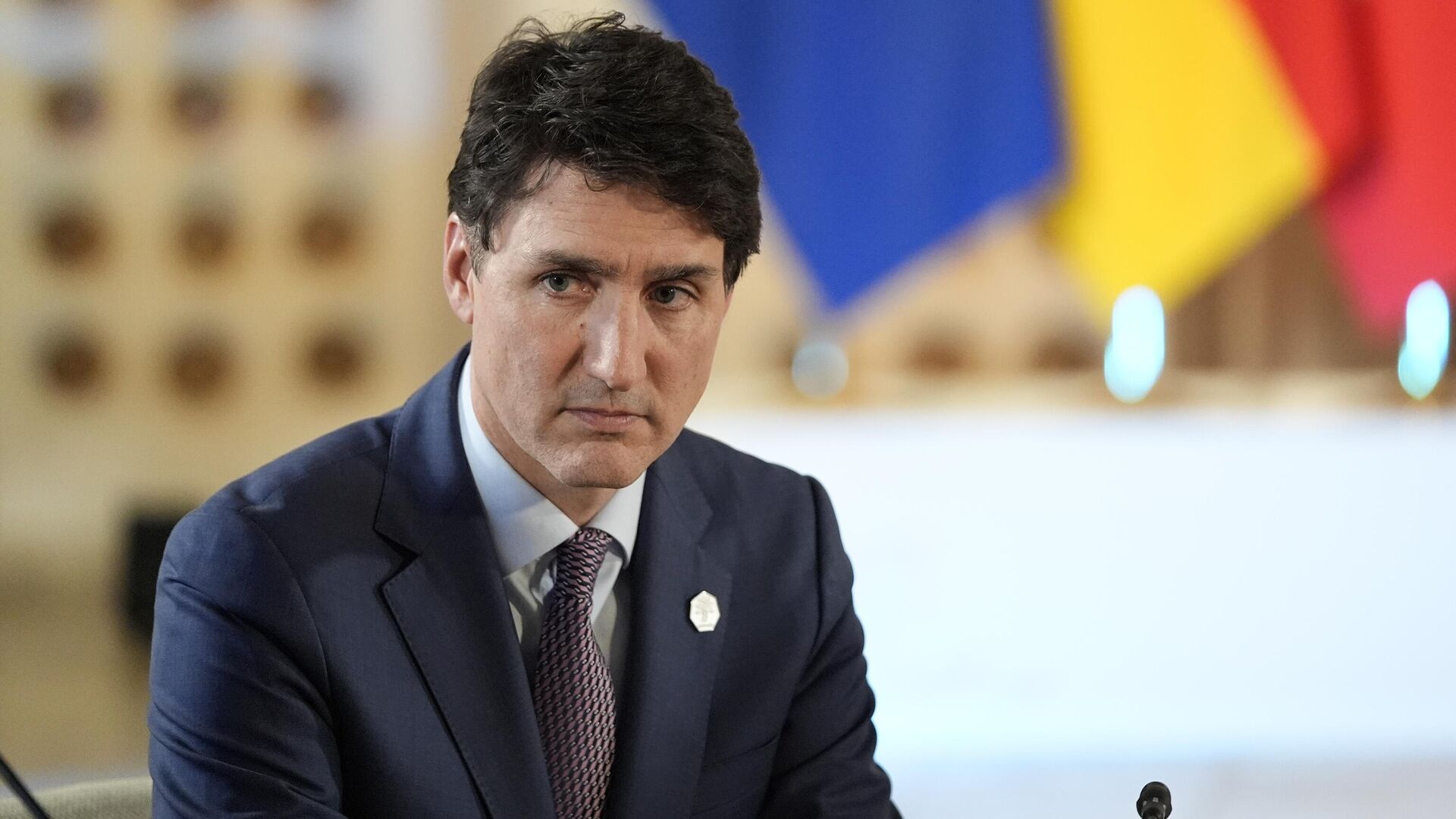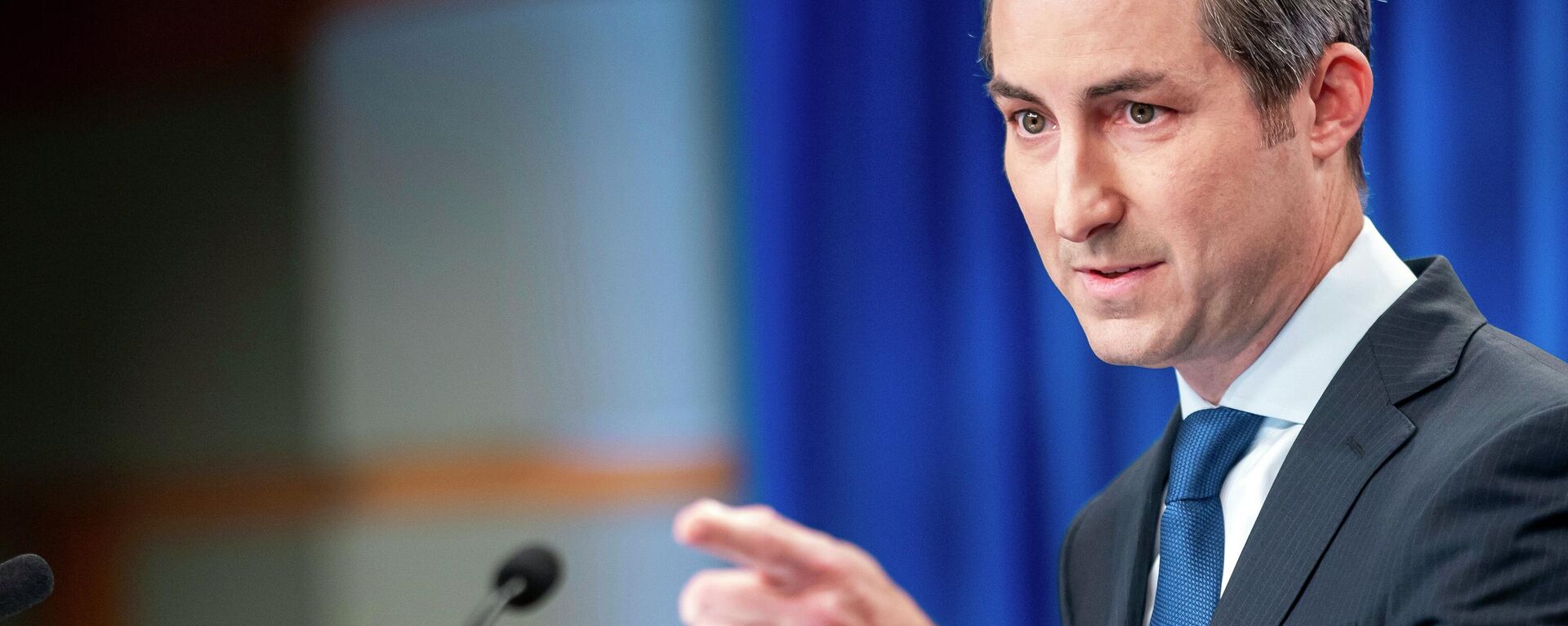https://sputniknews.in/20241030/canada-used-washington-post-to-tarnish-indias-image-bjp-politicians-8345879.html
Canada Used Washington Post to Tarnish India's Image: BJP Politicians
Canada Used Washington Post to Tarnish India's Image: BJP Politicians
Sputnik India
Two politicians linked to Bharatiya Janata Party (BJP) have hit out at the Canadian authorities for leaking "unsubstantiated" information about Home Minister Amit Shah to Washington Post.
2024-10-30T18:53+0530
2024-10-30T18:53+0530
2024-10-30T18:53+0530
canada
india
khalistan movement
sikhs
terror charges
terror outfits
terrorism
counter-terrorism
terrorist attack
us
https://cdn1.img.sputniknews.in/img/07e8/0a/12/8286377_0:0:3072:1728_1920x0_80_0_0_9f9b6a95f44486408504eb4c83f3379b.jpg
"The leaks by Canada's Deputy Foreign Minister David Morrison targeting Home Minister Amit Shah shows that they are trying to put India in a bad light. The leaks prove one thing for sure, that the Canadian government is directly supporting the anti-India Khalistani extremists for their own political benefits, which is a point that's been repeatedly emphasised by our government," BJP politician and geopolitical expert Savio Rodrigues told Sputnik India.Rodrigues pointed out to the previous statement by the Ministry of External Affairs (MEA), highlighting that 26 extradition requests, including those relating to members of the Lawrence Bishnoi Gang, were pending with the Canadian authorities. Despite Canada's public accusations on Indian government's involvement in targeting pro-Khalistan extremists, the MEA has maintained that Ottawa is yet to share any credible evidence with New Delhi.He further stated that the very fact that Morrison opted to leak the information to Washington Post implied that the United States Deep State's attempts to destabilise the Modi government were in full swing, labelling the Washington Post as a mouthpiece of the US Deep State."The Deep State is hellbent on creating complications for Prime Minister Modi. It wants to create a sense of instability as far as India's concerned," he said.From an Indian citizen's viewpoint, designated terrorists like Hardeep Singh Nijjar were viewed as an "existential threat to our sovereignty and territorial integrity", Rodrigues asserted.Speaking at a parliamentary national security committee in Ottawa on Tuesday, Morrison admitted to having leaked information about Shah to a Washington Post journalist this month.At the same hearing, Canada’s National Security Advisor, Nathalie Drouin, claimed that she met Indian NSA Ajit Doval in Singapore on October 12, presenting "evidence" of Indian "agents" linked to criminal activities in Canada. Drouin admitted leaking intelligence against India to The Washington Post as part of a "communication strategy" directed by PM Trudeau’s office.It was rather "ironic" that that Canadian Deputy Foreign Minister chose to leak the information to the Washington Post, Binay Kumar Singh, a national security expert at New Delhi-based think tank Dr. Syama Prasad Mookerjee Research Foundation (SPMRF), told Sputnik India.Singh questioned why Morrison didn’t come on record, hold a press briefing, or brief Canadian parliamentarians instead.Planting a news item, that too against a senior cabinet minister like Amit Shah, only proves what India has been saying all along: the Trudeau government is enabling pro-Khalistan radicals against India, while turning a blind eye to their terrorist and criminal activities directed at our sovereignty, Singh remarked.The BJP politician questioned the 'working relationship' between the Canadian government and pro-Khalistani radicals, adding that both were serving each other’s interests in their shared hostility toward India.
https://sputniknews.in/20241016/us-pressures-india-to-cooperate-with-canada-on-nijjar-probe-8277705.html
canada
india
us
Sputnik India
feedback.hindi@sputniknews.com
+74956456601
MIA „Rossiya Segodnya“
2024
Dhairya Maheshwari
https://cdn1.img.sputniknews.in/img/07e6/0c/13/138962_0:0:641:640_100x100_80_0_0_2cb44360dbcdf6d84bf4b299cd045917.jpg
Dhairya Maheshwari
https://cdn1.img.sputniknews.in/img/07e6/0c/13/138962_0:0:641:640_100x100_80_0_0_2cb44360dbcdf6d84bf4b299cd045917.jpg
News
en_IN
Sputnik India
feedback.hindi@sputniknews.com
+74956456601
MIA „Rossiya Segodnya“
Sputnik India
feedback.hindi@sputniknews.com
+74956456601
MIA „Rossiya Segodnya“
Dhairya Maheshwari
https://cdn1.img.sputniknews.in/img/07e6/0c/13/138962_0:0:641:640_100x100_80_0_0_2cb44360dbcdf6d84bf4b299cd045917.jpg
canada, india, khalistan movement, sikhs, terror charges, terror outfits, terrorism, counter-terrorism, terrorist attack, us, us state department, cia, amit shah, narendra modi, media bias, joe biden
canada, india, khalistan movement, sikhs, terror charges, terror outfits, terrorism, counter-terrorism, terrorist attack, us, us state department, cia, amit shah, narendra modi, media bias, joe biden
Canada Used Washington Post to Tarnish India's Image: BJP Politicians
Two Bharatiya Janata Party (BJP)-linked politicians have criticised Canadian authorities for leaking "unsubstantiated" information about Indian Home Minister to The Washington Post, calling it part of a broader campaign to tarnish the Modi government’s image.
"The leaks by Canada's Deputy Foreign Minister David Morrison targeting Home Minister Amit Shah shows that they are trying to put India in a bad light. The leaks prove one thing for sure, that the Canadian government is directly supporting the anti-India Khalistani extremists for their own political benefits, which is a point that's been repeatedly emphasised by our government," BJP politician and geopolitical expert Savio Rodrigues told Sputnik India.
"Khalistani extremists viewed as a threat to India's sovereignty and territorial integrity continue to act with impunity from Canada. Indian dossiers about criminals and terrorists operating from Canada have remained unheeded," Rodrigues asserted.
Rodrigues pointed out to the previous statement by the Ministry of External Affairs (MEA), highlighting that 26 extradition requests, including those relating to members of the Lawrence Bishnoi Gang, were pending with the Canadian authorities. Despite Canada's public accusations on Indian government's involvement in targeting pro-Khalistan extremists, the MEA has maintained that Ottawa is
yet to share any credible evidence with New Delhi.
He further stated that the very fact that Morrison opted to leak the information to Washington Post implied that the United States Deep State's attempts to destabilise the Modi government were in full swing, labelling the Washington Post as a mouthpiece of the US Deep State.
"The Deep State is hellbent on creating complications for Prime Minister Modi. It wants to create a sense of instability as far as India's concerned," he said.
From an Indian citizen's viewpoint, designated terrorists like Hardeep Singh Nijjar were viewed as an "existential threat to our sovereignty and territorial integrity", Rodrigues asserted.
"While India doesn't have this policy of carrying out extrajudicial killings, we certainly have been pressing Canada to crack down on Khalistani extremists in their backyard. National security is a prominent concern of not only the government, but also the Indian public," he said.
Speaking at a parliamentary national security committee in Ottawa on Tuesday, Morrison admitted to having leaked information about Shah to a Washington Post journalist this month.
At the same hearing, Canada’s National Security Advisor, Nathalie Drouin, claimed that she met Indian NSA Ajit Doval in Singapore on October 12, presenting "evidence" of Indian "agents" linked to criminal activities in Canada. Drouin admitted leaking intelligence against India to The Washington Post as part of a "communication strategy" directed by PM Trudeau’s office.
It was rather "ironic" that that Canadian Deputy Foreign Minister chose to leak the information to the Washington Post, Binay Kumar Singh, a national security expert at New Delhi-based think tank Dr. Syama Prasad Mookerjee Research Foundation (SPMRF), told Sputnik India.
"Washington Post has a history sheet against India. They are clearly part of the US Deep State," he said.
Singh questioned why Morrison didn’t come on record, hold a press briefing, or brief Canadian parliamentarians instead.
Planting a news item, that too against a senior cabinet minister like Amit Shah, only proves what India has been saying all along: the Trudeau government is
enabling pro-Khalistan radicals against India, while turning a blind eye to their terrorist and criminal activities directed at our sovereignty, Singh remarked.
The BJP politician questioned the 'working relationship' between the Canadian government and pro-Khalistani radicals, adding that both were serving each other’s interests in their shared hostility toward India.
"It is not a one-way traffic here. There seem to be mutual interests involved," Singh concluded.



